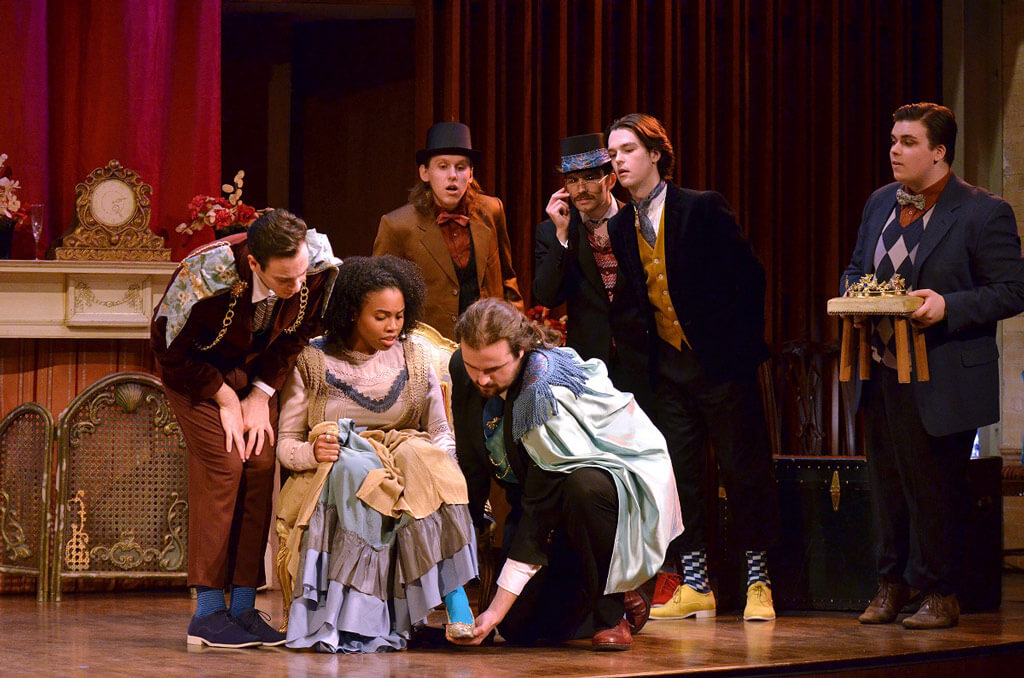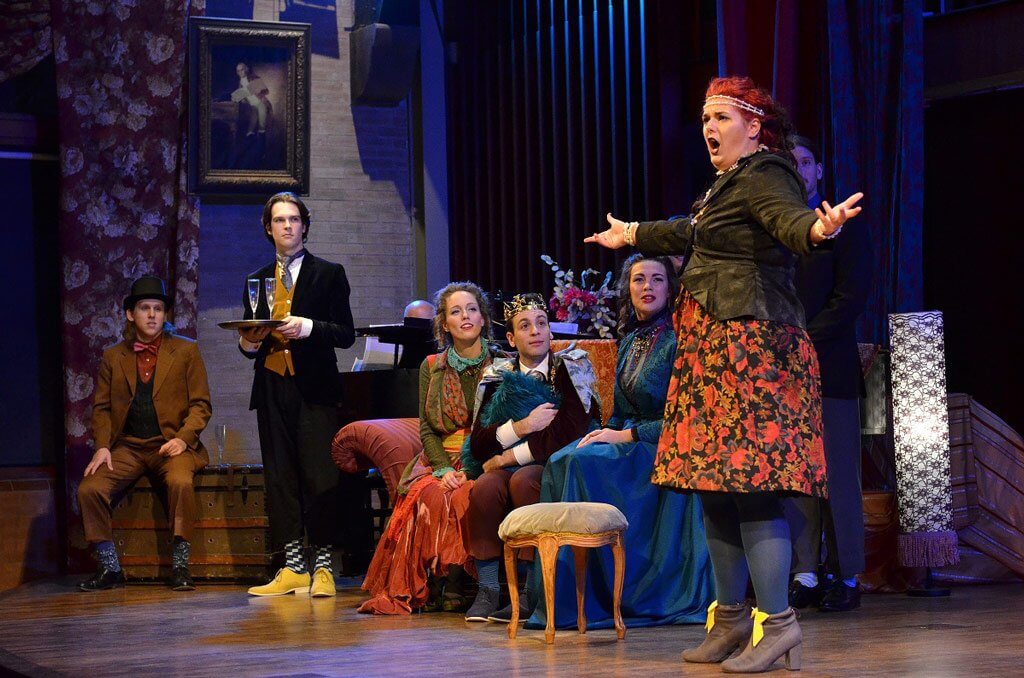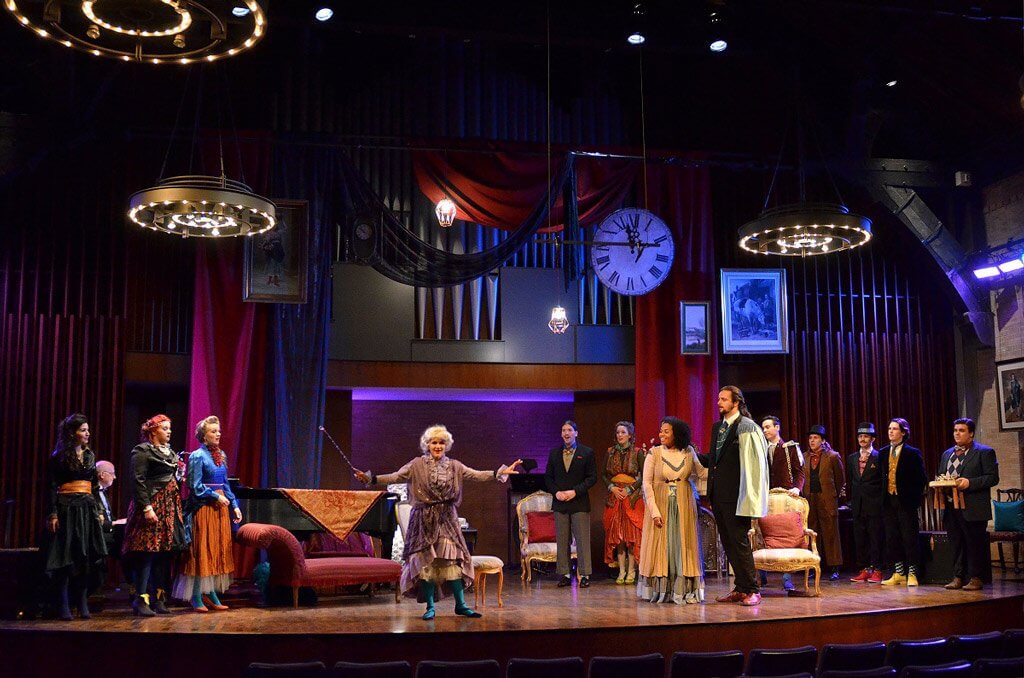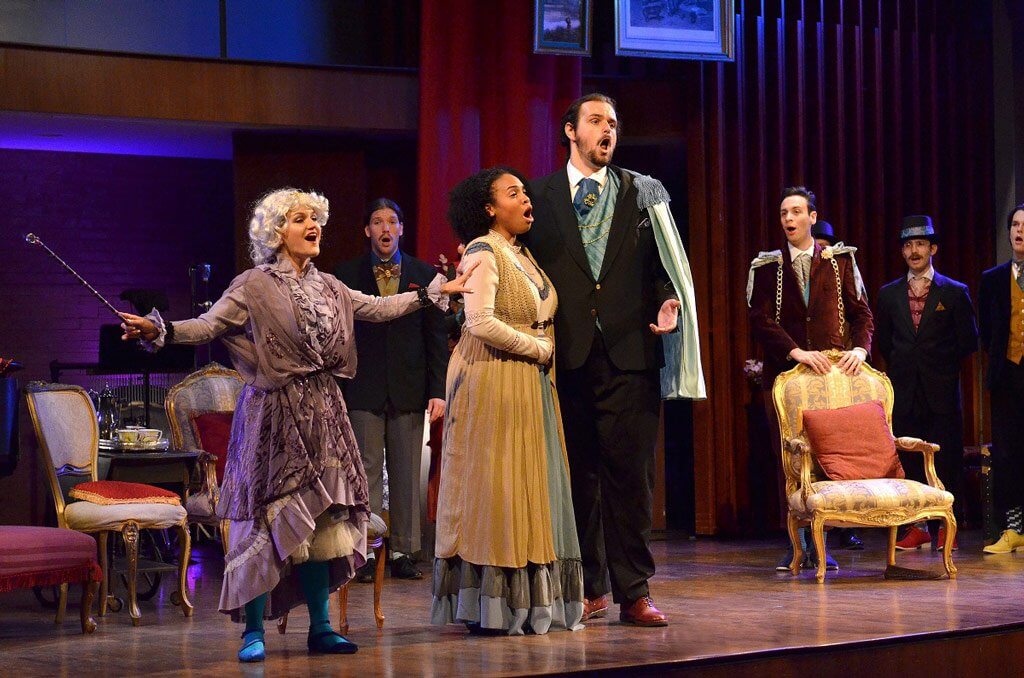
The Glenn Gould School: Cendrillon by Pauline Viardot. Directed by Joel Ivany. Friday, Nov. 18.
For opera lovers, the story of Cinderella brings immediately to mind Rossini’s La cenerentola, or Cendrillon by Jules Massenet. Relatively few opera lovers would be aware of Cendrillon by the French composer Pauline Viardot (1821-1910). A pupil of Liszt and admired by great composers the likes of Gounod, Berlioz, and Chopin, Viardot was an important figure in 19th-century European cultural life, a noted pianist, singer, teacher, and composer. As a singer, she was known for her Desdemona in Rossini’s Otello, and as Rachel in Fromental Halevy’s La Juive.
Viardot penned some 250 compositions, mostly chamber pieces, solo piano, operettas and lots of songs. Many of her French mélodies have a strong Latin flavour, given her Spanish parentage — the famous Manuel Garcia was her father. Her compositions also include transcriptions of works by other composers, like Chopin’s Mazurkas which she transcribed for voice. She also arranged popular folksongs from Spain and elsewhere. Among the more famous songs are Les filles de Cadix, Hai luli, Havanaise and the like. One often encounters these in recitals of women singers. The great Cecilia Bartoli recorded them early in her career. Canadian soprano Isabel Bayrakdarian has also recorded these songs to critical acclaim.
Viardot’s six operettas are best described as “salon pieces” — relatively short, typically with happy ending and meant to be performed as a sort of after-dinner divertissement. The Royal Conservatory of Music-Glenn Gould School has chosen her Cendrillon for its fall production. An interesting choice, and it makes me eager to compare it to the Massenet’s Cendrillon which GGS put on about six years ago in Koerner Hall. For those curious, there are a few video clips of the Viardot work on Youtube. It requires a very different venue, so Mazzoleni Hall is ideal. Stage director Joel Ivany and set/costume designer Anne Treusch have transformed the auditorium to simulate a French salon, complete with swag curtains, antique-looking furniture, etc., all from the University of Toronto Opera division’s props department! It would never have worked in Koerner given its contemporary décor. The artists — soloists and choristers alike — were dressed in period costumes and mingled with the audience before the show. When I arrived, I was greeted by two charming ladies, who turned out to be the Cendrillon and the Fairy Godmother!
Musically, the piece was about an hour long, plus a considerable amount of dialogue. It was a wise decision to do everything in English, as audience comprehension is key. The only exception was in the party scene where three songs were sung in the original French — Kendra Dyck sang “Chanson de la pluie,” Joanna Burt sang “Madrid” and Lynn Isnar “Aimez-moi,” all delivered with the appropriate balance of high-camp and enjoyable vocalism. The diction of all the singers were surprisingly good, making surtitles (almost) not necessary. The original translation by Rachel Harris has been modified, “enhanced” if you will, with plenty of contemporary references, funny and absurd at the same time. The audience was exceptionally polite and there wasn’t that much laughter at first. Eventually, everyone relaxed and went with the flow.
This was Viardot’s late work, premiered in 1904 and only a few years before her death, but you’d never have guessed it given its musical conservatism. For those audience members wanting to be challenged musically, or expect something profound in the text or in the drama, they’ll have to look elsewhere. If it’s only 90-minute worth of escapism you’re looking for, with not a dissonant chord in sight, step right up! With a large cast made up of students from the Glenn Gould School, all young people with fresh voices and boundless enthusiasm, it was a fun evening. I was impressed by the staging of Joel Ivany, who gave the piece the ‘straight treatment’ — as opposed to a spoof. This actually has the effect of making it funnier. He was also very adept in his blocking, or more appropriately in his traffic-directing (!) given the small stage and limited entrances and exits. Lyric soprano Jonelle Sills was a winning Cendrillon, singing with pure, rich tone. As Prince Charming, Patrick Simms’ pleasingly lyric yet robust tenor was heard to advantage, not to mention the dramatic statement made by his imposing height. The two of them sang a very nice duet.
Lilian Brooks (Armelinde) and Jocelyn Fralick (Marguelonne) as the two evil stepsisters were deliciously funny — in any case, Viardot goes easy on the “evil meter” compared to other versions in opera and ballet. Kudos to Irina Medvedeva as an over-the-top Fairy Godmother acting-wise, singing with nice tone. She also doubled as the hostess at the beginning. Her fearlessly deadpan quality as an actress reminded me of the young Madeline Kahn, an American comedienne. Not to be outdone, tenor John-Michael Scapin acted up a storm as a seriously droll Chamberlain, not an easy part vocally as Viardot throws in some ridiculous coloratura into his music. Equally fine was the sturdy baritone of Kjel Erickson as the Father. There was even a minuet thrown in for good measure, danced with enthusiasm and well-rehearsed precision by the whole cast.
I’d be remiss if I don’t mention the rock-solid support of Peter Tiefenbach at the Steinway, keeping everything moving. I must say I would have preferred a chamber orchestra in this piece, but given the economics of student productions, it is what it is. All in all, a short but sparkling evening in the theatre. Don’t miss the second and final show this evening at Mazzoleni Hall — 7:30 pm curtain but get there early to soak up the Parisian Salon atmosphere!
#LUDWIGVAN
Want more updates on Toronto-centric classical music news and review before anyone else finds out? Follow us on Facebook or Twitter for all the latest.






